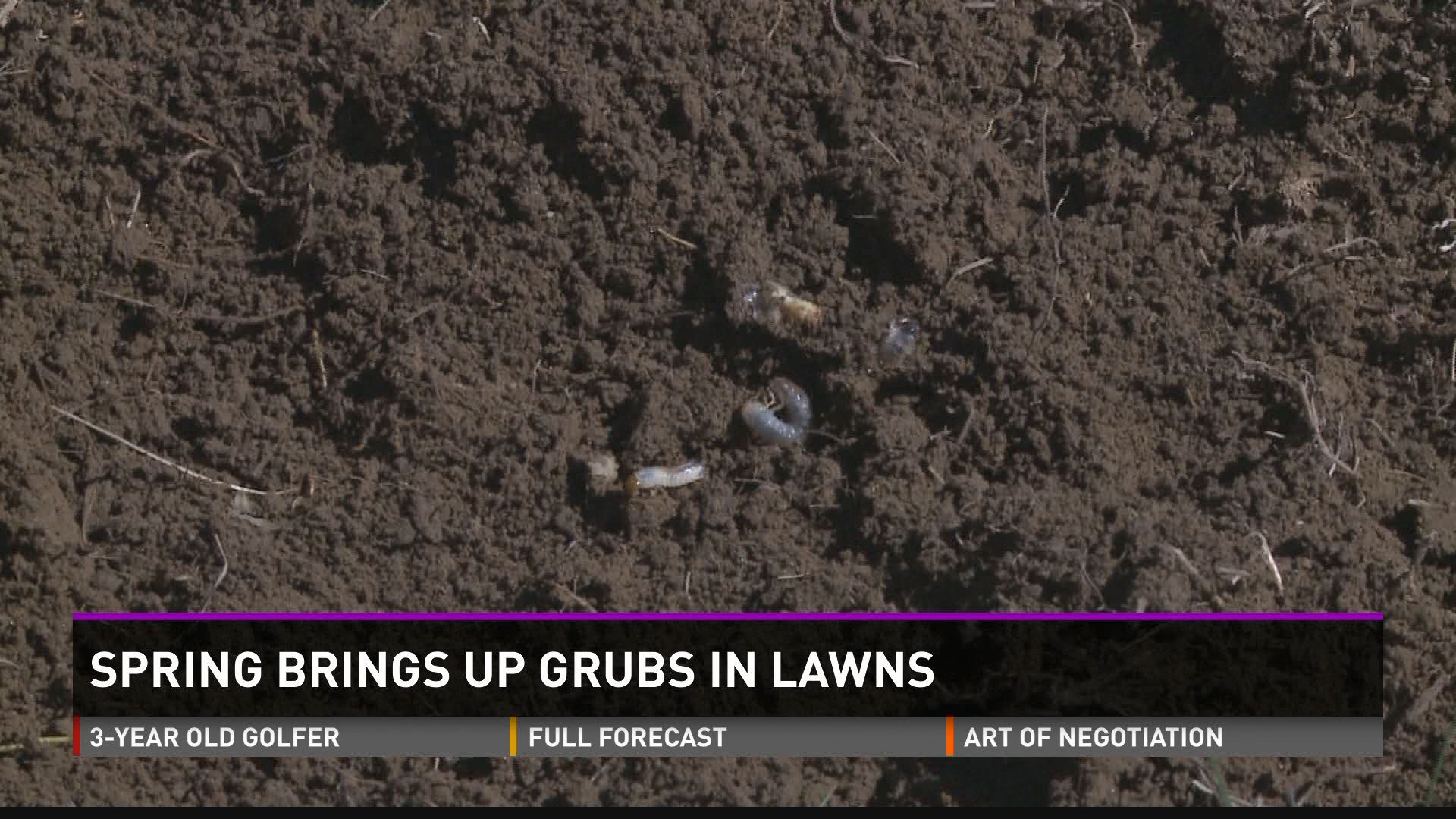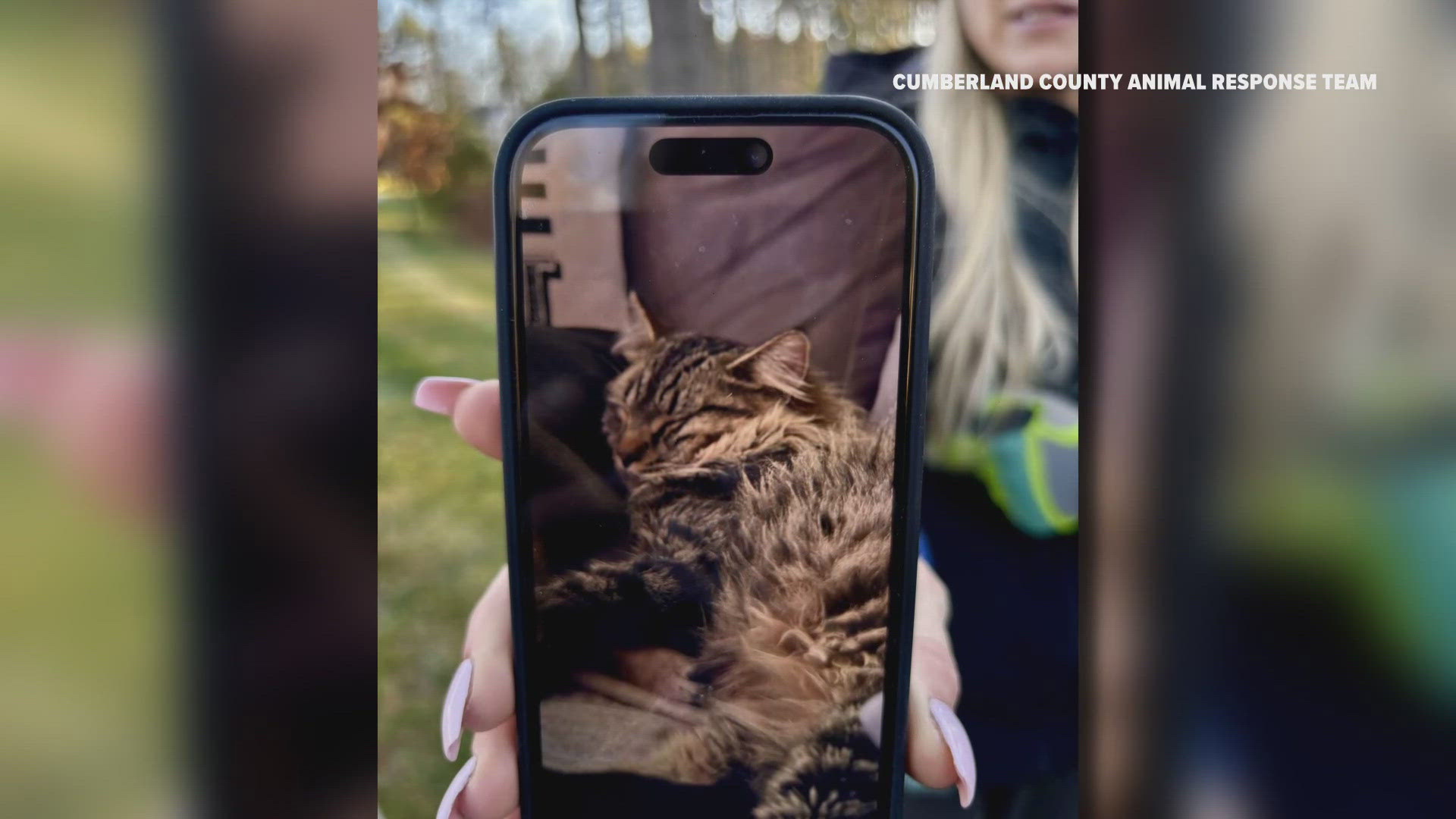![Spring brings back the grubs[ID=8916379] ID=8916379](http://www.gannett-cdn.com/-mm-/33d97f8a03d5ea06baca0f7a30eca34c8bd87643/r=500x281/local/-/media/WLBZ/WLBZ/2014/05/09/1399674288000-grub-season-pic.jpg) BANGOR, Maine (NEWS CENTER)-- The immature larvae of beetles can turn a once lush green lawn into dead, brown patches.
BANGOR, Maine (NEWS CENTER)-- The immature larvae of beetles can turn a once lush green lawn into dead, brown patches.
"I had problems with grubs before. They ruin your lawn!" said Gisel Vafiades, a Bangor resident.
It's that time again - grub season. When those plump white larvae of Japanese beetles invade the grass, possibly in a lawn near you.
"Since there's plenty of moisture right now it's pretty green. But then you start to get spots like this as it dries up a little bit, and these are the spots that most likely due to grubs," said Jim Dill, manager of the University of Maine Cooperative Extension Pest Management Office.
It's not just the grubs that do damage, but the animals they attract. Skunks emerge after long winters of hibernating looking to chow down on the protein packed pests. So they dig into the grass searching for grubs to eat until they get their fill.
"They do a real real lot of damage to lawns just by digging. And you also start seeing crows coming in and start doing the same thing. You'll see a crow and what they'll do is grab a clump of grass and just flip it. And they'll start picking up the grubs," Dill said.
But if you're hoping to get rid of the grubs now, you should have started treating your lawn back in the fall. Treating grass now will only prevent more grubs from emerging in the later months. Pesticides can be used in recommended amounts to get the job done. Nematodes- microscopic worms- can also be put down early in the season to eat the grubs.
"While you're getting them down now, what this does is this controls the grubs that are going to come out in the summer, fall, and be there next spring. So anything you're putting down now that we suggest really for next year," said Dill.
The key to getting rid of pesky grubs is to stop them before they have the chance to become a problem in your lawn.
"I have seen other people's lawns and they can really do a number on it. So I wanted to have it taken care of so I called somebody and I had it sprayed and from now on I have it done every year," Vafiades said.
He also says grub patterns can be unpredictable. Just because you have an infestation one year, does not mean you won't have it the next, and visa versa. But before you pour chemicals all over your lawn, have a professional check to make sure grubs are really the reason behind brown patches in the grass.


